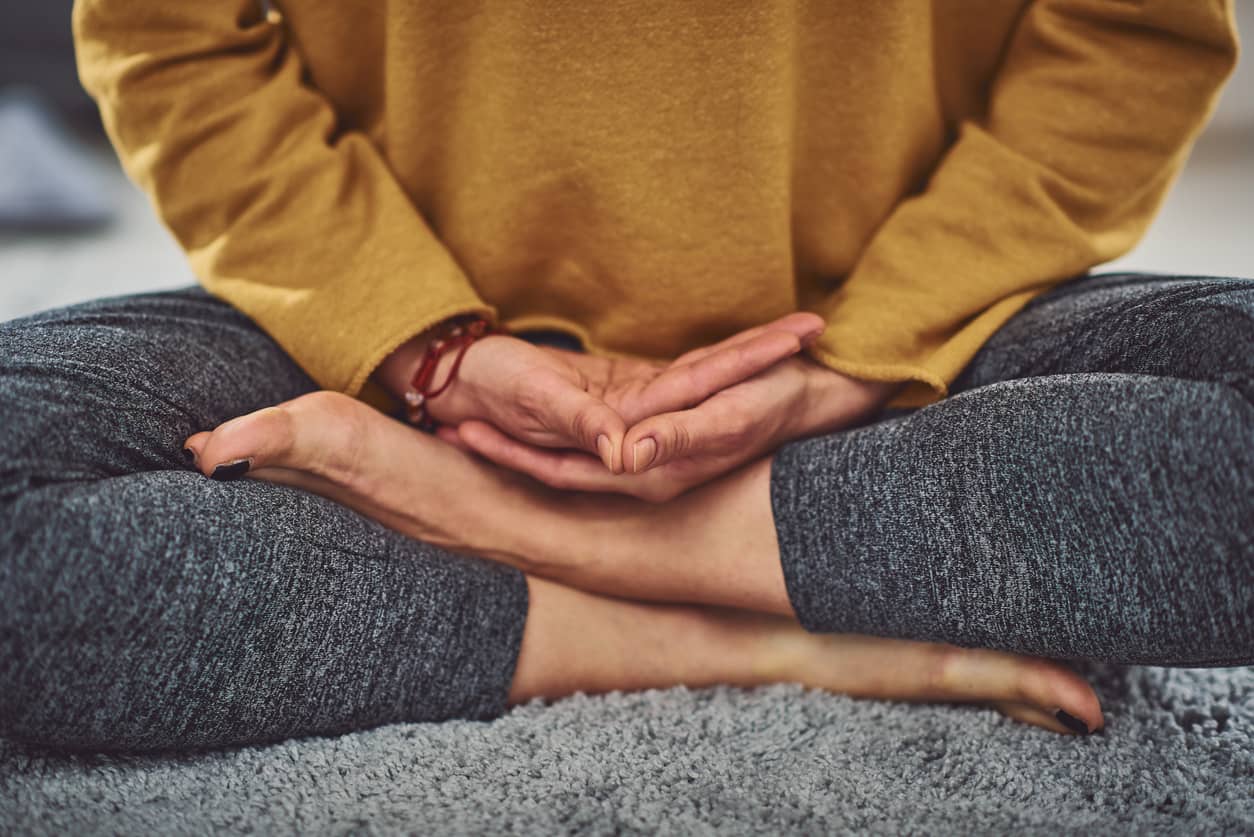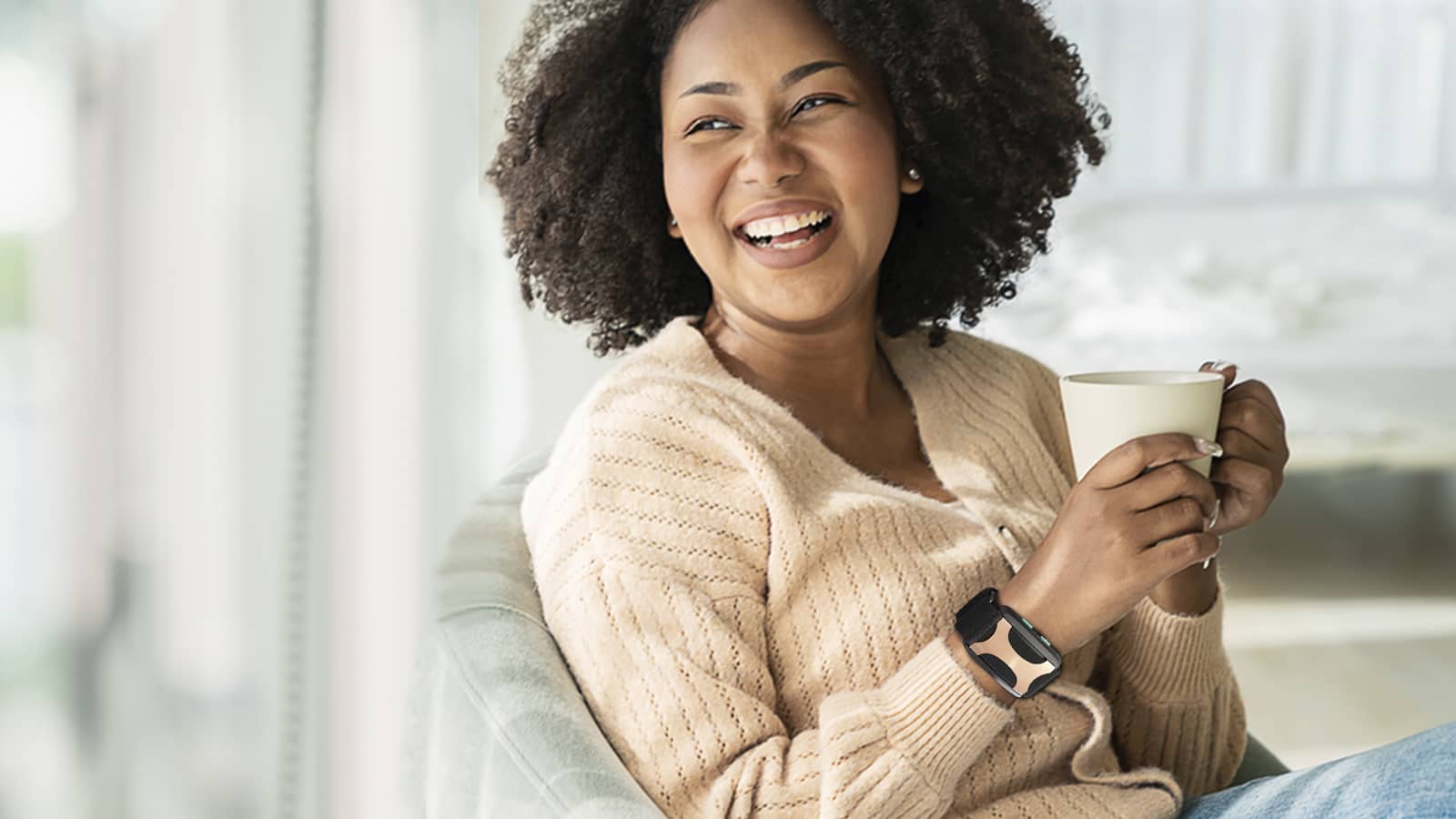Anxiety is crippling millions of people. Are you one of them?
Anxiety can feel like an unwelcome visitor barging in to disrupt your inner peace—sometimes it sneaks in, other times pounding relentlessly. Whether it creeps in as a restless feeling or racing thoughts bombard you, it’s tempting to try to "fix" or stop the anxiousness. But what if instead of fighting with anxiety, you could calm it naturally and build emotional intelligence skills, generating inner peace from the inside out?
Estimated reading time: 4 minutes
Heartmanity is proud to partner with outstanding companies that we wholeheartedly recommend so this post may contain affiliate links. You can read our full disclosure here.
In this blog, we’ll explore the top three natural remedies and simple exercises to ease anxiety’s grip on your mind and body.
No quick fixes or empty promises – just grounded, practical tools to soothe your nervous system, quiet racing thoughts, and help you return to a place of calm clarity.
Your body and mind are designed to self-regulate. These effective practices will help you emotionally regulate yourself so you can navigate life’s challenges with greater ease and confidence.
Before we dive in, let's define what anxiety actually is and understand the symptoms and tell-tale signs.
What Is Anxiety?
Anxiety comes from the fight-or-flight response, which is a survival mechanism. When faced with life-threatening situations, we get a surge of hormones that prepares us to fight or flee. As a result, our hearts pound, muscles tense, internal alarms go off, and we are on high alert.
Unfortunately, in today’s world, this response can be triggered by how we frame our experience or what we imagine and say to ourselves rather than actually being threatening. Anxiety activates the amygdala, which signals a threat and triggers a stress response, even when there is no immediate danger.
Therefore, unknowingly, we can be triggering this reaction numerous times throughout the day, which can put your system into a state of chronic stress.
A healthy dose of stress teaches us how to cope; some apprehension keeps us safe. For example, looking both ways before crossing the street to ensure we are safe from ongoing cars is a good habit, but continuous or high-level anxiety can be debilitating.
According to the World Health Organization, over 300 million people worldwide live with an anxiety disorder as of 2019. What a travesty!
Related Reading: Know the Difference Between Healthy vs. Chronic Stress
Symptoms of Anxiety
You may already be familiar with the symptoms of anxiety, but it's important to isolate them so you can learn to spot anxiety early on. This way you can try one of the remedies before it gets out of control.
- rapid heartbeat
- sweats or chills
- nausea
- faster breathing
- shortness of breath
- light-headedness
- inability to focus
- churning in stomach
- tightness in chest
- can interfere with sleep
- muscle weakness
Fortunately, there are natural remedies for anxiety, some within ourselves. Understanding your natural soothing system will arm you to approach anxious thoughts and feelings differently.
Related reading: "How to Stop Feeding Your Anxiety with Avoidance."
The Human Body's Natural Relaxation System
The human body has a natural relaxation response designed to counter the fight or flight response. This response triggers the parasympathetic nervous system, which is the part of the nervous system that helps the body rest and relax. It can put you into a physical state of deep relaxation, which changes your physical and emotional responses to stress.
In turn, it decreases your heart rate, blood pressure, rate of breathing, and muscle tension. In other words, your body and mind feel the physical effects of stress relief.
There’s no one way to trigger the relaxation response. There are many ways to self-soothe; it's different for every person. Some people engage in a combination of decompressing activities such as yoga and meditation. The best way to get the most out of whatever stress relief activities you choose is to make them a regular practice. In general, 20-30 minutes a day is considered reasonable and can be broken into two smaller sessions.
Sometimes, understanding yourself better and investing in your emotional intelligence is helpful and can also positively impact you, creating a happier and calmer life. The more we can effectively govern our emotions, the more resilience we build, better equipping to handle life's curveballs.

3 Healthy Ways to Deal with Anxiety and Stress
1 - Shift stress with deep breathing.
There are different methods to combat anxiety and invoke the natural relaxation response, and most of them include deep breathing or Diaphragmatic Breathing.
Unfortunately, many people have become accustomed to shallow chest breathing, which increases tension and anxiety. Deep breathing fills your diaphragm and encourages the full oxygen exchange, incoming oxygen, and outgoing carbon dioxide. It also signals the brain that we are safe.
Harvard Business Review writes, “Research shows that different emotions are associated with different forms of breathing, and so changing how we breathe can change how we feel.” When we inhale, our heart rate speeds up, but when we exhale, it slows down.
Therefore, if you are agitated, it’s helpful to lengthen your exhale. Try breathing in for a count of four, then breathing out for a count of eight. Pay attention to how you feel.
Another easy breathing exercise is called Box Breathing. Imagine drawing a box, inhale to the count of four, hold your breath there for a count of four, exhale to a count of four, then hold your breath there for a count of four. Let your belly expand and contract as you breathe. Repeat this sequence several times until you feel yourself relax.
2 - Try the Apollo Wearable
One of the best uses of technology is in the health field—tech is revolutionizing how we exercise while also increasing our knowledge about our bodies. When you are stuck in a pattern of anxiety, the right technology can be a great support and retrain your body. Coupled with a mindfulness practice, they're a dynamic combo!
Apollo is a wonderful, new wearable that helps our bodies deal with stress and assists us to relax and recover, improving our body's resilience. It can be worn on the wrist, ankle or clipped onto clothing for a comfortable wear.
Its scientifically validated technology trains your nervous system to bounce back from stress more efficiently. Go from "fight and flight" to "rest and digest" and experience calmer feelings, clear your mind to focus better or stay energized by choosing and adjusting the vibes to your needs. These wearables make unique gifts and have been a big hit!
3 - Practice guided imagery.
Guided Imagery (GI) or visualization is another technique to change how you feel quickly. GI is one of my favorite tools because it’s simple, doesn’t take long, and can be done almost anytime, anywhere. In essence, GI means mentally visualizing peaceful scenes to promote a state of relaxation.
These images distract you from your anxious state and allow the mind and body to focus on positing thoughts and sensations. It is focused relaxation that quickly creates harmony between the mind and body.
The place can be anywhere: a favorite memory, somewhere you wish to visit, or simply a quiet scene that fills you with comfort. It’s best to add as much detail as you can relating to each of the senses. What do you see? How does it smell? Do you feel a gentle breeze on your face? Is there a taste that reminds you of comfort or pleasure?
As a child, I loved spending the summers at our Minnesota lake cabin. Floating on the water looking at the blue sky was extremely calming and the smell of fresh fish on the grill still takes me back there. Finding memories that are calming is a fabulous way to assist and support yourself if you're struggling with anxiety.
For me, Tai Chi or a run makes a huge difference in emotional stability. Essential oils are easy methods that I apply to return to balance. Find the ways that downshift your anxiety into relaxation and inner peace. Try on one of the above suggestions and discover some of your own.
Related Reading: "Struggling with Anxiety? Learn How to Calm Yourself."
If you'd like to learn more about emotional intelligence or want personalized coaching to deal with your anxiety, contact us at support@heartmanity.com.









